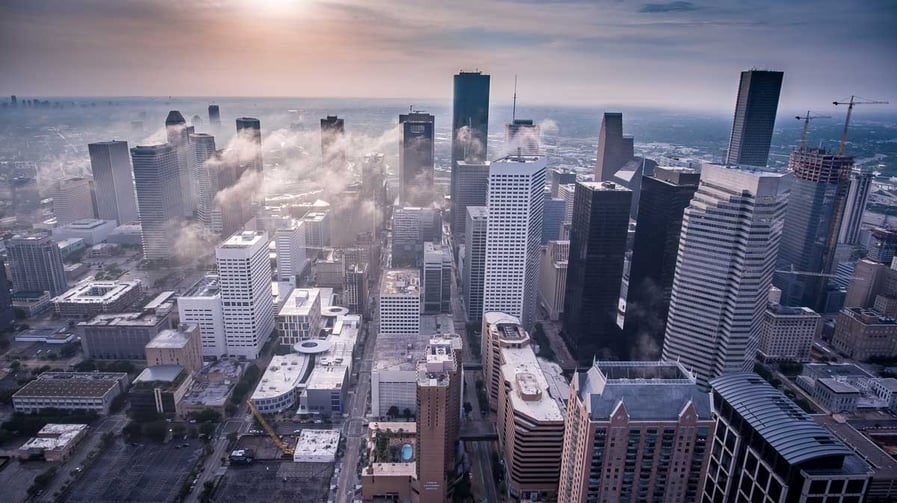Governments globally responded to the onset of the COVID pandemic with urgent and widespread efforts to distribute funds across the economy – just as they had in response to the 2008 economic crisis. This was an emergency effort to prevent an economic collapse after a massive drop off in consumer demand and disruption to the supply chain, as well as easing the financial pain and suffering on families and businesses.
In this article we reflect on the financial measures put in place by the US and UK governments to support their respective economies during the pandemic in comparison to the 2008 crisis, and we examine the wave of fraud that ran alongside the new measures.
2008 versus 2020
So, how did 2020’s measures compare to those in 2008? In the first instance, instead of the US Treasury Department and Federal Reserve serving as a bulwark to collapsing commercial and investment banks, the government passed multiple broad economic relief bills to distribute funds directly to individuals, small businesses, and corporations. The primary mechanism to accomplish this was the Paycheck Protection Program (PPP), designed to keep incomes flowing after demand for goods and services flatlined.
The Federal Government was dealing with an entirely different animal compared to the 2008 credit crisis as funds were rapidly disbursed all over the United States to public and private businesses of all sizes – from mom-and-pop storefronts to global corporations. One could argue that this was very successful. While an economic downturn was inevitable, the recovery has been swift, and we currently find ourselves living with the fastest pace of GDP growth since the early 1980s, combined with historically low unemployment rates.
In the UK, the government provided businesses with emergency coronavirus-related funds through a number of schemes, notably the Coronavirus Job Retention Scheme, the Recovery Loan Scheme, and various tax relief packages.
Success or otherwise?
However, the overall success of these financial measures is a mixed landscape. While households are flush with cash, home and asset prices continue to rise, and consumer savings are at historical highs, polling data points to societal unhappiness. Perhaps this is part of a revaluation of priorities as a result of the coronavirus pandemic, a migration of people from cities to rural areas, and now back. Much of this could be evidenced by what many are calling the ‘Great Resignation’. It is also bolstered by increasing levels of inflation in both the US and the UK. At the very least, the last two years have been a period of intense disruption.
Fighting fraud
One factor contributing to the trauma is the powerlessness felt by many as instances of corruption, fraud, rule-breaking, and misuse of public funds continue to dominate the news cycle – a disturbing parallel to what we observed just 14 years ago.
The US Department of Justice has pursued many cases, often successfully, relating to fraud committed within the PPP programme. In January, a Georgia woman was sentenced to 41 months in prison for fraudulently trying to obtain nearly $8 million in PPP loans. In February, 22 people were charged with conspiracy to commit fraud over $3.9 million in PPP loans. In these instances, the fraudsters submitted falsified documents, and claimed far higher numbers of employees than they actually had, if at all. Sometimes they claimed lost revenue for businesses that did not exist. Other cases have been filed against individuals in New Jersey, Florida, Texas, and other states across the US. Many of these matters were brought against individuals and we have not yet observed evidence of the more systemic or institutional fraud that was evident in 2008.
While efforts to defraud and exploit the PPP programme were predictable, much remains to be investigated. The economic crisis of 2008 spawned years of litigation over collateralised debt obligations, mortgage-backed securities, and Ponzi schemes. This period will be no different. We will not fully understand the depth and breadth of fraud that occurred within PPP funding for many years. COVID-related fraud is likely to remain in the headlines for years to come. Even a decade and a half later, some cases from 2008 remain ongoing.
Covid-related PPP fraud is certainly not isolated to the US. In the UK, for example, the parliamentary public accounts committee reported that as much as £16 billion had been fraudulently or mistakenly claimed from that country’s coronavirus relief schemes. To date, UK enforcement agencies have made more than 50 arrests arising from serious fraud in relation to the country’s coronavirus relief scheme. In December 2021, for example, two individuals were convicted in an English court of running a £70 million money-laundering operation, in the course of which they had fraudulently claimed more than £10 million in coronavirus relief funds. In March 2022, the UK government released a policy paper detailing its efforts to recover payments from fraudulently or erroneously claimed coronavirus relief schemes, through which it expects to recover £1.5 billion by the end of next year. Despite these efforts, HM Revenue & Customs has been widely criticised for effectively writing off £4.3 billion in fraudulent loans.
Outlook
So, what is the reality today? At S-RM we’ve assisted several law firms with matters stemming from PPP fraud, many of which rose from Department of Justice enquiries. To date, these have generally resided within DOJ’s criminal division, but questions remain as to whether larger conspiracy-driven civil fraud cases will begin to develop. We would always advise our clients to take these accusations seriously when considering an investment in a business that may have been a PPP recipient. However, we do not expect to witness the same high levels of civil litigation that followed the 2008 crisis, where the bailouts remain controversial following what we learned were inflated asset values and malpractice at some investment and commercial banks. COVID relief differs in that it was instituted for reasons beyond the control of any individual or business.
We will continue to keep a watchful eye on future enforcement developments in this space. Businesses should always be careful with whom they do business and conduct proper due diligence. While you can research publicly the firms that have received PPP funds, it would likely take a current or former employee blowing the whistle to uncover anything beyond what the government is already investigating. Keep a wary eye on those with links to industries that may have been set up to benefit from COVID relief, such as suppliers of PPE or other medical equipment, particularly recently formed entities which may have been set up for the purpose of bidding on government contracts.




